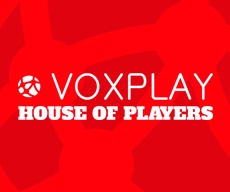Opinion: Want To Change the Culture of Junior Hockey? Change the Business Model

The Globe and Mail
Tony Keller
February 19, 2024
News Item: The NHL and Canada’s major-junior hockey leagues were hit Wednesday with a class-action lawsuit alleging they operate a cartel that violates U.S. antitrust law, suppresses competition and keeps players locked in an exploitative system that pays them poverty wages in exchange for a dream of playing in the pros. – The Globe and Mail, Feb. 14.
This is a uniquely Canadian story.
Like the other boys in the neighbourhood, Billy always dreamed of becoming a money manager. He’d learned double-entry bookkeeping before he could ride a bike. He was doing net present value calculations before most kids could read. In elementary school, he would spend the long winter nights outside under the lights, practising modern portfolio theory and playing Monte Carlo simulations for hours, until Mom called him home for bedtime.
Billy was one of the top performers in the bantam asset management league, so when the Western Junior Asset Manager draft was held, a few weeks before he graduated from Grade 9, he was chosen in the second round by the Prince Albert Municipal Employees Pension and Benefit Fund.
Prince Albert was now his employer, or rather his owner. He would have to leave Mom and Dad, and be billeted with a family in Northern Saskatchewan. He’d also get a salary of just $250 a month. Like everything else, it was non-negotiable.
Billy and his parents believed that if he wanted to become one of the 700 or so players in the National Pension League – the stars of the Canada Pension Plan Investment Board, the Ontario Teachers’ Pension Plan, or Billy’s hometown favourites, the Alberta Investment Management Corporation – then this is what he had to accept. Don’t question. Don’t complain. Don’t get marked as a difficult employee.
Not long after arriving in Prince Albert, Billy and the other rookie analysts were subjected to a ritual hazing by the second-year and third-year associates. He was ordered to down shots until he puked. Then he was stripped naked, urinated on and beaten with a hardcover copy of the CFA Level One textbook. He did not question or complain.
Early in his second season, Billy was traded to Kamloops. He had just a few hours to pack up and catch the next bus out of town. His new boss soon told Billy that he wasn’t talented enough at securities analysis, so if he wanted to stick around, he’d better learn a different game.
Trying to do as he was told, Billy started a fight with a finance guy playing for Kelowna, B.C. He injured his wrist and was out of action for the rest of the season.
Before his third year, he was traded to Brandon. His career seemed to have reached a dead end. He still wasn’t old enough to buy a drink.
The above tale is both fact and fiction.
It is, of course, not how it goes if you want to work in money management. Or engineering. Or marketing, construction or I.T. – or any other job in Canada.
But it’s the way of the world in Canadian hockey. Or more specifically, major-junior hockey in the Canadian Hockey League – the 60 teams of the Western Hockey League, the Ontario Hockey League and the Quebec Maritimes Junior Hockey League. The CHL used to be the only route into the NHL, and it is still the most common.
The allegations contained in the lawsuit brought last week in New York by the World Association of Icehockey Players Unions have yet to be proven in court. At issue is whether the way the CHL’s leagues do business is illegal under American competition law, which may apply because several CHL teams are located in the U.S., as is the NHL.
The law is unsettled. The facts mostly aren’t.
Major-junior hockey’s labour practices would be shocking and unacceptable anywhere else. It starts with the draft.
The draft means that CHL employees – who are children when drafted – lose their autonomy, agency and bargaining power. Unless they want to walk away from major-junior, they have to play for the team that drafted them. Their employer sells hundreds of thousands of tickets thanks to their labour, and earns revenues from television and product sales based on their labour, yet they have no ability to bargain for pay or working conditions.
And though they cannot sell their labour to a CHL team other than the one that drafted them, their employers can trade them – any time. Imagine if the Tim Hortons in Calgary could sell its teenage employees to the McDonald’s in Winnipeg, and order them to report to the new job site the next morning.
Or imagine if an aspiring student from Vancouver was told that she has been drafted by the University of Lethbridge – and as a result, her application to McGill would be automatically rejected.
The draft is what underpins major-junior hockey’s often abusive culture. End the draft, and at a stroke of a pen, players and parents will suddenly regain autonomy and bargaining power.
To change the culture, change the business model. To change the business model, change the rules.



